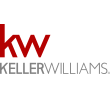Understanding PMI (Private Mortgage Insurance)
One of the most frequently misunderstood aspects of mortgaging a home, especially for first-time buyers, is Private Mortgage Insurance (PMI). The most common misconception is that PMI is a mortgage life insurance policy whereby the mortgage would be paid off should the borrower die. It is not. Instead, PMI is an insurance that most lenders require of all borrowers who put less than 20% down. Its purpose is to protect the lender against losses should the borrower default.
Virtually all conventional mortgages with less than a 20% down payment will dictate the inclusion of PMI. FHA mortgages, which are insured by the Federal Government, require a different type of insurance with different coverage. The cost of PMI will depend on a number of factors, including the insurance carrier and the size of the loan, but monthly payments for the insurance will generally fall into the $25 - $100 range for median priced homes.
What's In It For You?
When confronted with PMI for the first time, many buyers will ask "If I'm paying the premium but it is the lender who is protected, what's in it for me?" Simply put, the ability to purchase a home with less than 20% down. Lenders have found that those who put down less than 20% are far more likely to default than those who put down more. With the protection of PMI, lenders are able to make more loans (and more buyers are able to buy homes) with down payments as low as 5% or 10%. This is especially important to first-time buyers, where liquid cash for down payments and closing costs is often tight.
Unlike the mortgage insurance on FHA loans (which remains through the life of the loan) PMI is, under certain circumstances, cancelable. A new law, the Homeowners Protection Act of 1998, simplified this cancellation process greatly. Where once it was an involved process to get the PMI removed from the loan, the procedure is now much more "owner-friendly". With all qualifying loans that originated after July 29, 1999, a homeowner has the right to request cancellation when the mortgage balance is less than 80% of the original purchase price or appraised value (whichever is less). In order to request cancellation, the loan must be current with no delinquencies in the last 1-2 years. In addition, an appraisal of current value (at the homeowner's cost) may be required.
The Homeowners Protection Act also stipulates (in the case of most loans) that when the balance reaches 78%, cancellation is automatic. Again, the loan must be current for the cancellation process to begin.
Tips on PMI
Your goal should be a 20% down payment level since this achieves a number of goals. First, it eliminates the cost of PMI entirely. Second, it lowers your monthly payment (since you have financed less). Third, it allows you to buy more house since the money that would have been for PMI can now be for a higher mortgage payment.
There are plans which allow you to avoid PMI by getting an immediate 2nd mortgage when you purchase the home. For example, you would get a first mortgage for 80% of the purchase price (no PMI), a 2nd mortgage for 10% of the purchase price and put 10% down in cash (commonly known as an 80-10-10 mortgage). The benefit here is obvious (you avoid PMI) but there are several potential downsides:
1. The 2nd mortgage will be at a rate higher than the 1st mortgage, eating up some of your payment savings.
2. The 2nd mortgage may have a variable rate, meaning that your payment can increase.
3. The 2nd mortgage may have a balloon payment, meaning that the new balance will become due and payable long before the 1st mortgage is paid off.
Tax Considerations
A disadvantage of PMI has been that its premiums have not been an allowable deduction on income tax returns. Recent changes in legislation permits some borrowers with annual adjusted gross incomes of under $100,000 to take PMI premiums as deductions. Please discuss this with your loan officer and with your tax advisor to determine your personal eligibility.
Summing Up
Although at first glance PMI appears to benefit only the lender (and paid for by you!) there actually is the big advantage of the ability for a homebuyer to purchase a home with a much smaller down payment. Just be certain to keep a close watch on your equity so that you can cancel the PMI at the first possible opportunity.
An excellent resource for more detailed information on PMI is the website of the Federal Reserve Bank of San Francisco at: http://www.frbsf.org/publications/consumer/pmi.html.


